George Lucas reinvented the entire genre of science fiction with his original Star Wars Trilogy. This story about a simple farm boy leaving home to rescue a princess, blow up a moon-sized superweapon, and become a samurai wizard is an iconic example of the Hero's Journey--the foundation of most classical works of literature and myth in Western cultures.
From these three films, an entire franchise was spawned. One of the best stories to take place in this twice far off galaxy is actually The Knights of the Old Republic video game (henceforth called KOTOR). Here are five ways KOTOR was even better than the original trilogy (& five reasons the films are better).
10 KOTOR: More Worlds To Explore
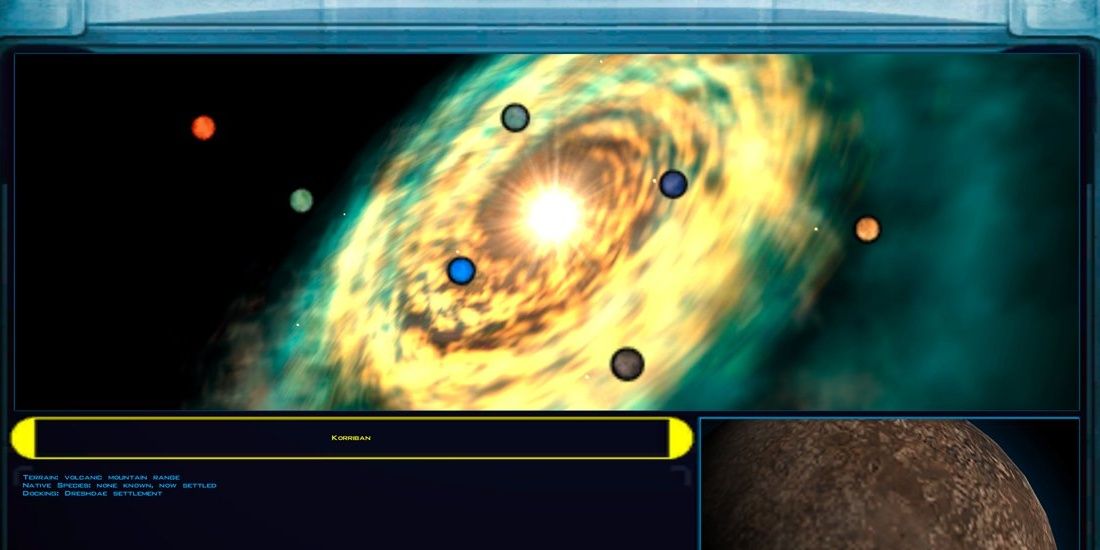
A great science fiction series allows fans to lose themselves as they are transported to another world. In A New Hope, Luke and most of the cast spend a lot of time on Tatooine, then a short spell on Yavin IV. Aside from being aboard the Death Star, that's it. In total, there are only six planets or moons that the main characters set foot on across all three original films.
To put it in perspective, there are seven planets that players visit in KOTOR, along with two giant starships and a standard-sized transport ship. This gives players more chances to lose themselves in the experience of exploring the galaxy.
9 Films: They Started It All

If not for the films, there would be no KOTOR. None of the Star Wars video games would exist. Nor would the novels, the comics, the 1981 radio drama, the Mandalorian TV series, parodies, nor any of the sequels, prequels, or Holiday Specials.
However, it is not merely that the Star Wars movies came first. Rather, the movies were so good, they justified everything that came after.
8 KOTOR: Nuanced Philosophy
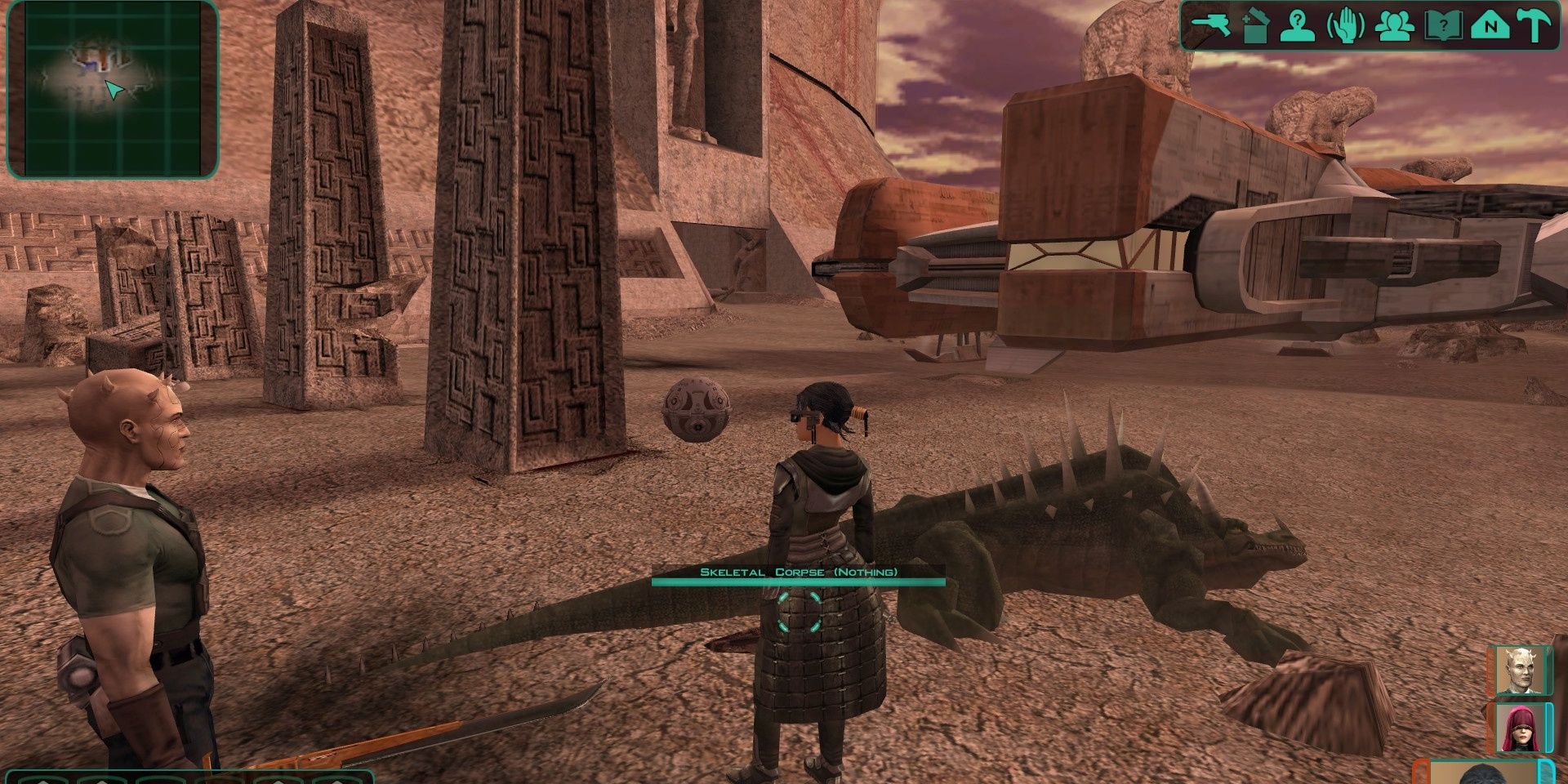
The philosophy presented by Obi-Wan and Yoda has wisdom to it, but on closer inspection, it can feel a bit like a dime store version of Zen Buddhism mixed with a little bit of Taoism and a splash of Abrahamic teachings.
KOTOR is better about delving into complex ideologies. Not only are the core belief systems of the Jedi and Sith clearly laid out, but these are challenged. The unemotional detachment of the Jedi is forced to confront the power of love. Light and dark are not absolutes to be pursued, but extremes to be balanced. Everything from class hierarchies to military strategy have philosophical critiques in this profound game.
7 Films: The Characters
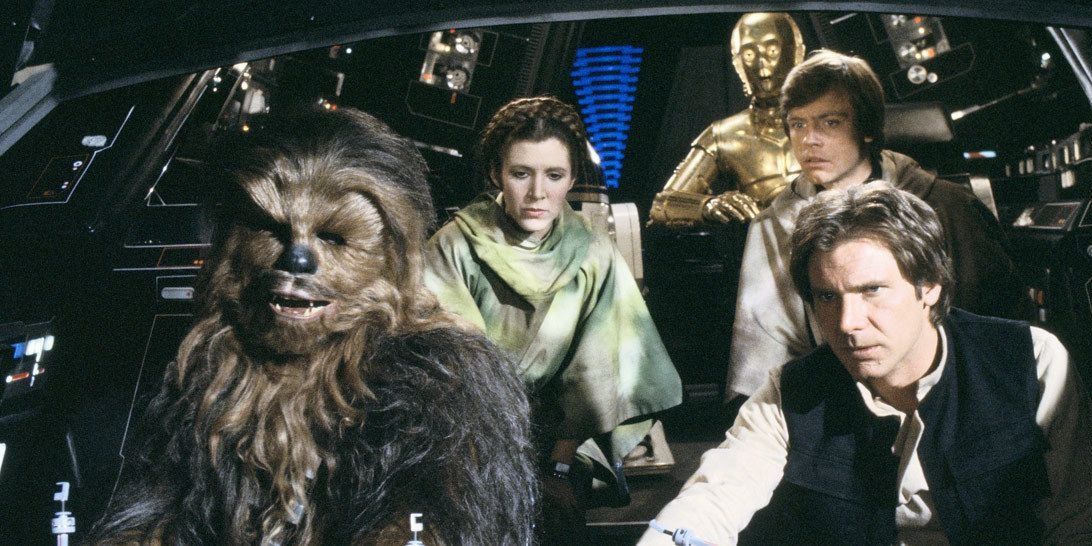
In almost every story ever written, characters create conflict, and conflict is the essence of the plot. That is why it is so important that Star Wars has the amazing cast of characters that it does.
From the rise of the naive boy Luke to the resolve of Princess Leia who resists the Empire even after torture and the lost of her home world to the redemption of jaded quick-shooting Han Solo, every character has an arc. Additionally, even the lowliest characters are prioritized, as seen in how C-3PO and R2-D2 are the point of view characters at the start of A New Hope.
6 KOTOR: The Old Republic
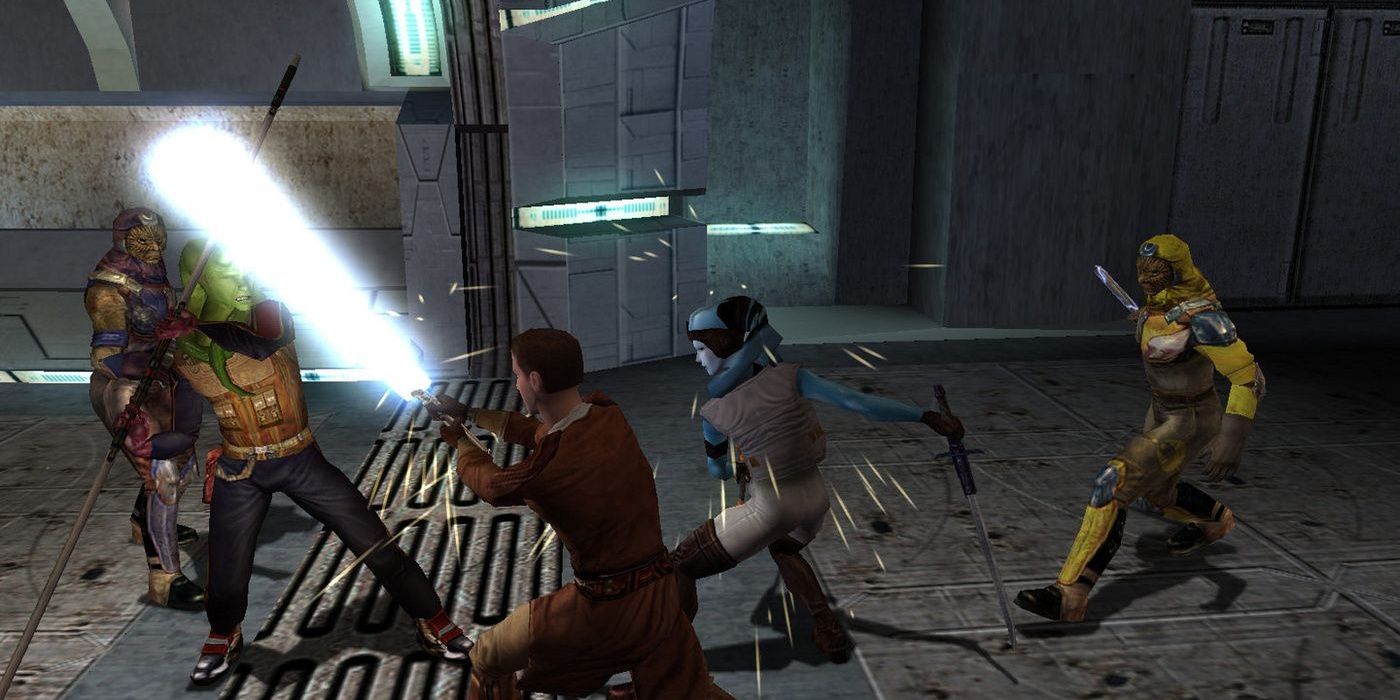
All Star Wars stories take place "a long time ago," but the events of KOTOR happen thousands of years before that. The world is ancient. And it feels ancient. Weathered temple ruins and long lost star maps are core features of the game, while many of the institutions and alien species of the story will have disappeared by the time of the Skywalker Saga.
And yet, it still maintains a futuristic aesthetic. The story takes place in ravaged galaxy that barely survived one war, only to be plunged into another. Specialized blasters and vibroblades are the weapons of choice for non-Jedi. Beyond this, evil corporations, family feuds, organized crime, and the rise of the Sith add layers of complexity to the galaxy. There's just so much going on during this interesting time period!
5 Films: The Hero's Journey
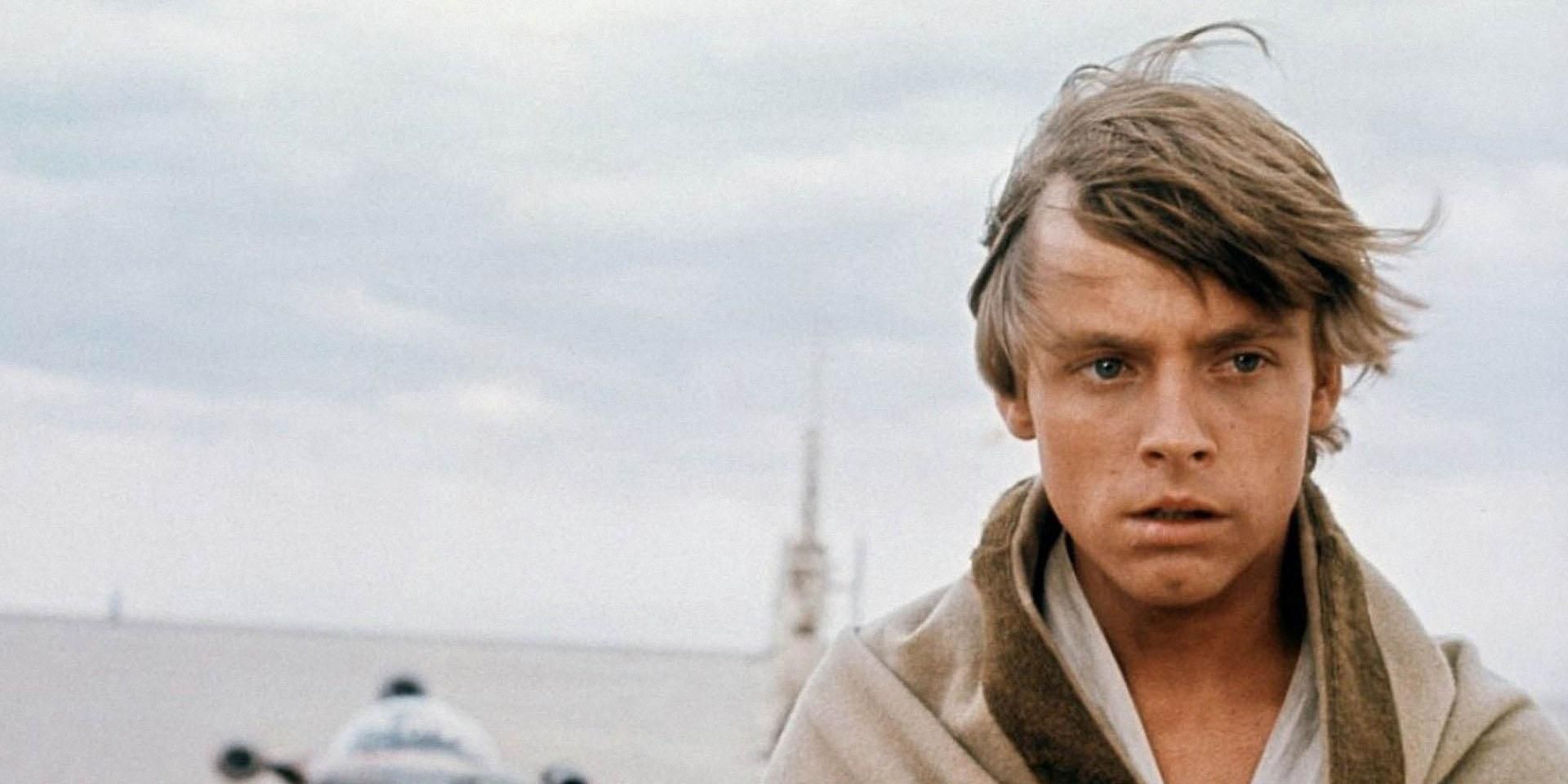
The monomyth, also known as the hero's journey, is a pattern found in stories and mythology around the world that was popularized by the mythologist and religious scholar Joseph Campbell.
While many stories intentionally follow this structure, George Lucas intentionally set out to copy this narrative style when writing Star Wars. Needless to say, the results paid off and Luke's journey from Tatooine to Endor is among the most famous examples of the monomyth in contemporary pop culture.
4 KOTOR: More Force Powers
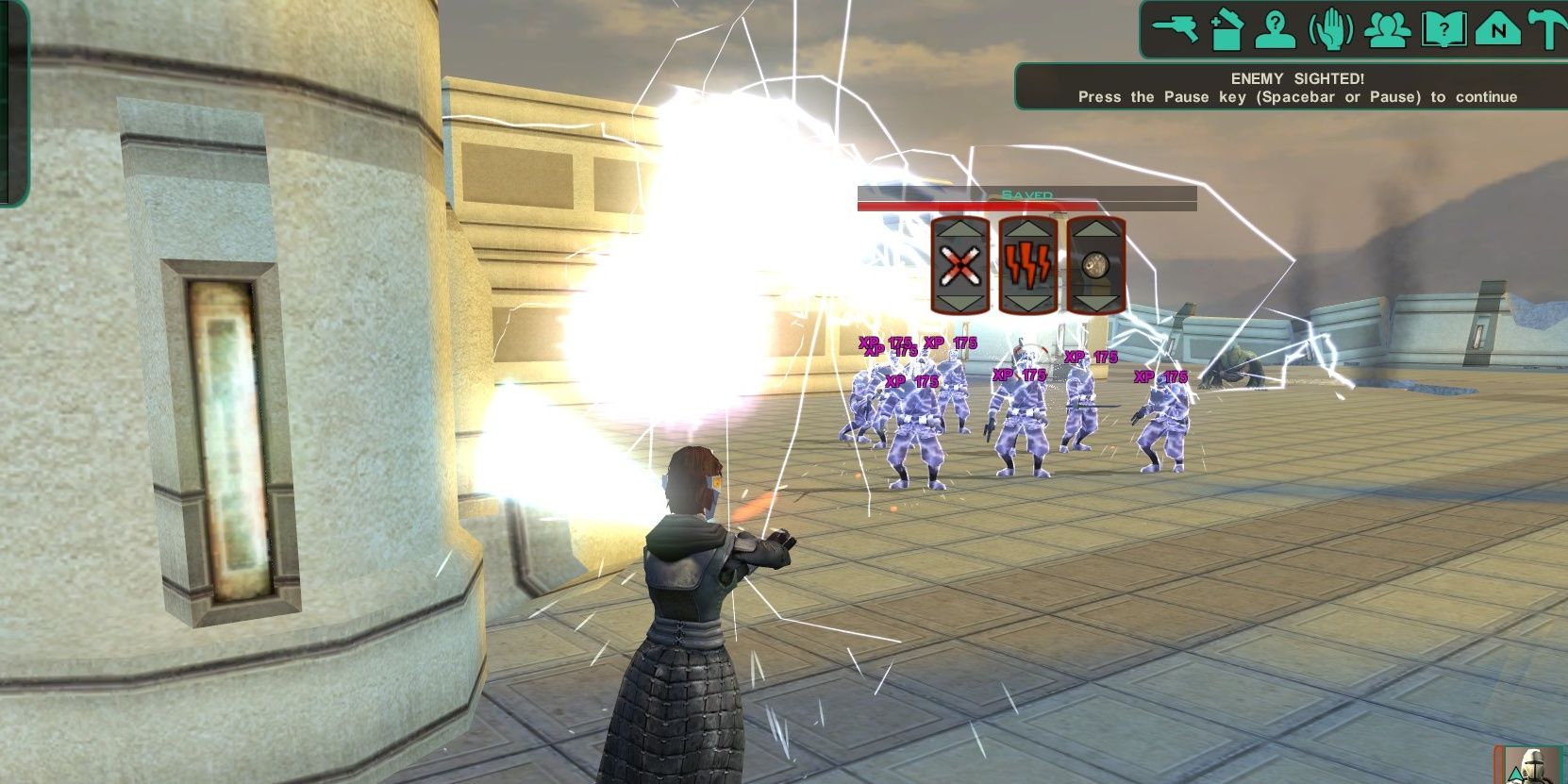
There is so much that the Force can do, and Lucas made sure to show plenty of Force powers in the films. However, the video games allowed players to actually use Force abilities, so it was important to give them more to do than just block blaster fire and talk to Force ghosts.
From healing wounds to dismantling droids, there is an abundance of Force powers in KOTOR. Additionally, the sequel allows a player to choose their preferred form of lightsaber combat.
3 Films: Unlimited Possibilities
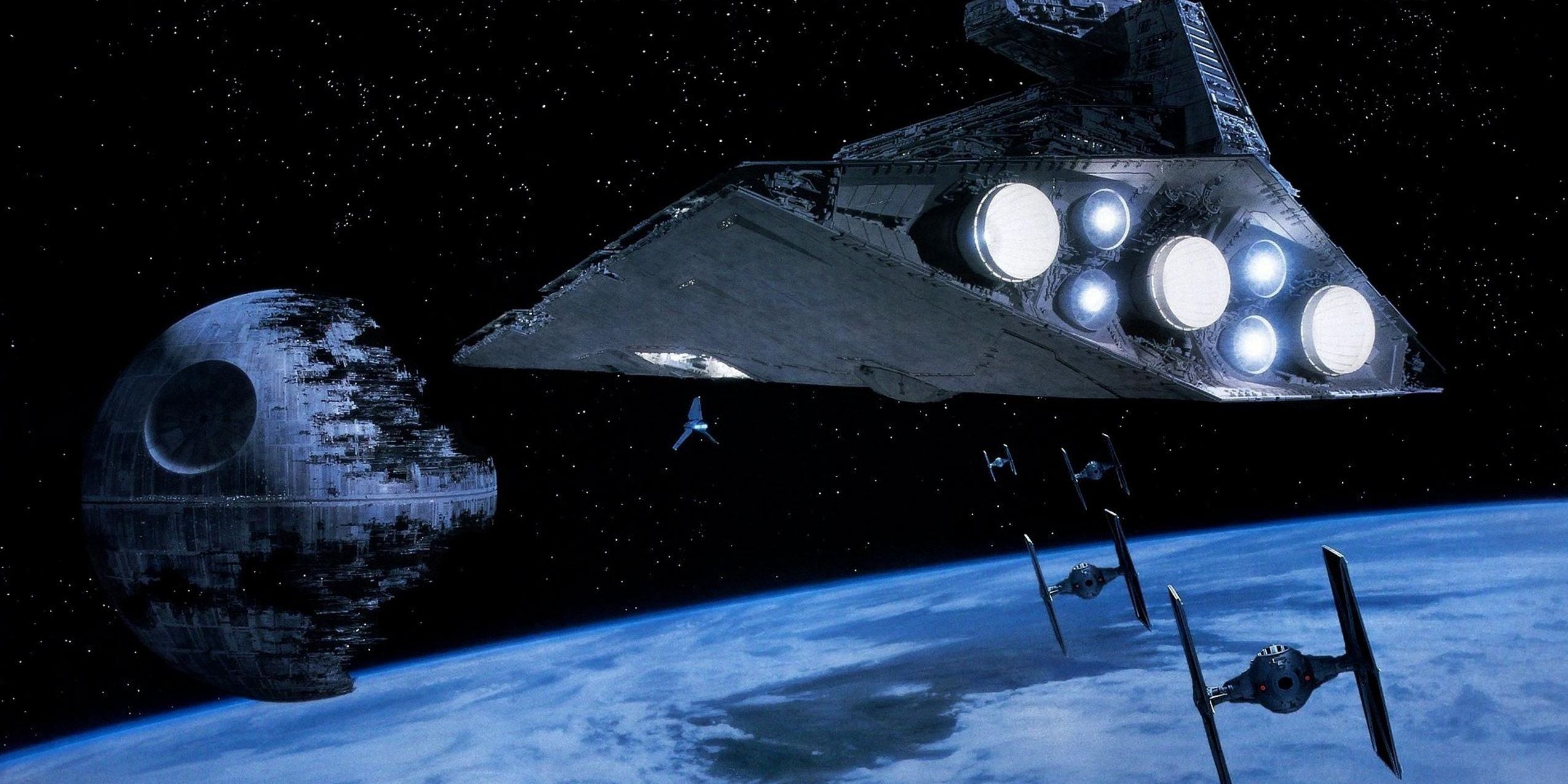
There are advantages and disadvantages to every storytelling medium. Video games allow players to explore more on their own, which is an advantage, but also only let players explore areas that have been designed by the game's production team. When a player runs into the limit of areas they can explore, it breaks the illusion of moving through a fully developed world.
The films did an amazing job of suggesting that more lay in wait just beyond the edge of the camera. One can imagine horrors waiting in the narrow corridors of Cloud City or more strange wildlife concealed in the jungles of Endor. Because fans do not see the edge of the set, they can imagine that it never ends.
2 KOTOR: More Jedi
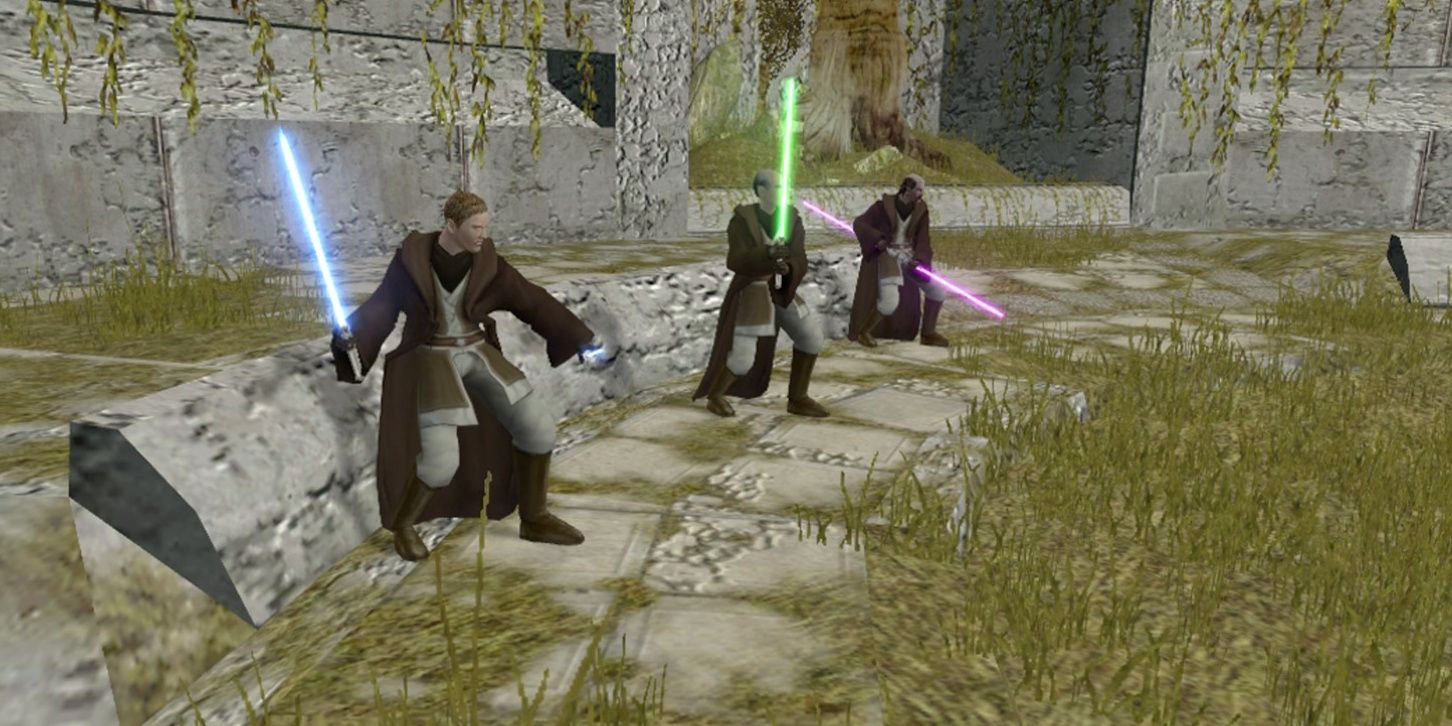
There are only three Jedi in the original films: Luke, Obi-Wan, and Yoda. If one wants to be generous, they could also include Leia or Darth Vader, but Vader has become a Sith Lord by the start of A New Hope while Leia's training only really begins after the end of Return of the Jedi.
Contrast these three Jedi with the four who are playable characters in KOTOR. Or the four Jedi Masters on Dantooine. Or the various other Jedi moving about in the background on Dantooine. Or the many Dark Jedi who took up with Malak and the Sith. The Old Republic was just a more interesting time because it had more Jedi.
1 Films: Darth Vader
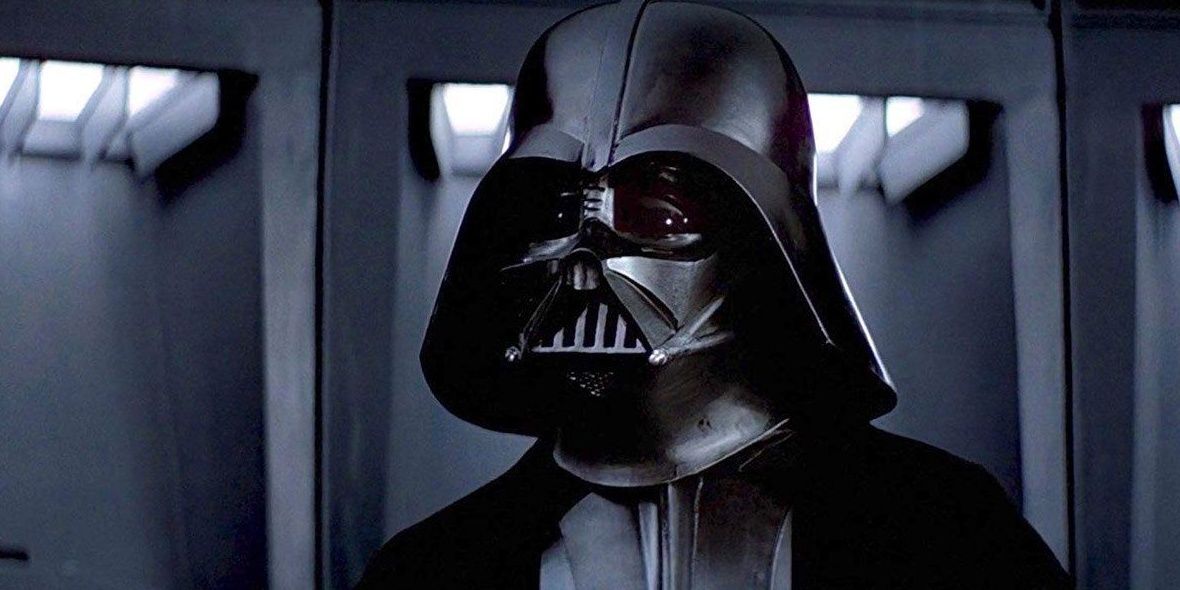
It is hard to imagine a better villain than Darth Vader. The Dark Lord of the Sith is simultaneously a mechanical abomination whose humanity has been replaced with machinery and a mystical sorcerer wielding unfathomable dark powers.
KOTOR has some great villains among the Sith, most notably Malak. The sequel has even scarier villains. But they all have the same problem: they're not Darth Vader.
from ScreenRant - Feed https://ift.tt/2WULM8f
via IFTTT







0 comments:
Post a Comment